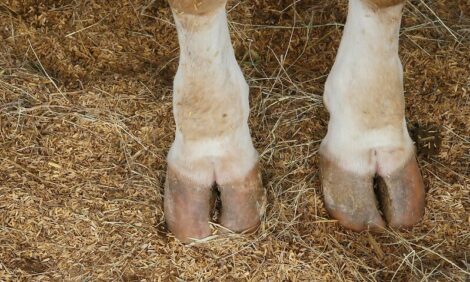



WOAH calls for restriction on use of antimicrobials as growth promoters
Nearly 20% of members still use antimicrobials for growth promotionAntimicrobial resistance is a growing concern. In recent years, the international community has made important commitments to address this global health threat. One of these is to phase out the use of antimicrobials to promote growth in healthy animals. It is time to move from commitment to action, the World Organisation for Animal Health (WOAH) said in a recent press release.
Antimicrobial resistance (AMR) threatens the health of humans, animals, plants and our shared environment. Too often, antimicrobials are misused or overused across sectors, creating the conditions for this phenomenon to emerge. While the majority of WOAH Members have taken strong action in recent years to reduce their use in animals, further efforts are needed as these drugs are still being inappropriately used as growth promoters in some countries.
Taking stock of the use of antimicrobials for growth promotion
In 2016, all WOAH Members committed to definitively ban the use of highest priority antimicrobials for humans, and to phase out the use of antimicrobials in animals for growth promotion purposes in the absence of a risk analysis. How has this commitment been put into practice so far?
- Almost 20% of Members still report using antimicrobials for growth promotion. Of these, it is estimated that 76% have not carried out any preliminary risk analysis.
- More worringly, no less than 11% of WOAH Members still use as growth promoters at least one of the highest priority critically important antimicrobials for human medicine such as colistin.
- At least 50% of the Members using antimicrobials as growth promoters have no regulatory framework in place.
- In some countries, the labelling of certain feed additives intended to increase productivity does not mention the presence of low doses of antimicrobials, which are then unknowingly administered to animals by veterinarians and farmers.
Such practices are not in compliance with WOAH international standards or the Global Action Plan on AMR.
Competent authorities and the livestock industry must fulfil their responsibilities to phase out the use of antimicrobials for growth promotion in animals
WOAH standards make a clear distinction between veterinary medical use of antimicrobials – which is limited to the treatment, control and, where appropriate, prevention of infectious diseases – and non-veterinary medical use. The administration of antimicrobials for growth promotion in animals is a non-veterinary medical use, and it must not be assimilated to disease prevention use, which requires animals to be at proven risk of disease if the medicine is not administered.
WOAH calls on its Members to restrict the use of antimicrobials solely to veterinary medical use and to actively engage in dialogue with the concerned parties to achieve a total ban on the use of antimicrobials as growth promoters, starting with those that are critically important for human health.
Competent authorities must enact relevant legislation in this regard and are invited to explore and promote alternatives to improve animal productivity, as relevant. These can include, among others, animal health programmes that focus on disease prevention (e.g., deworming and vaccination), biosecurity and good animal husbandry practices.
The misuse of antimicrobials in different sectors accelerates antimicrobial resistance. The animal health sector must play its part in curbing this global scourge that threatens animal, human and plant health and adopt sustainable practices.



